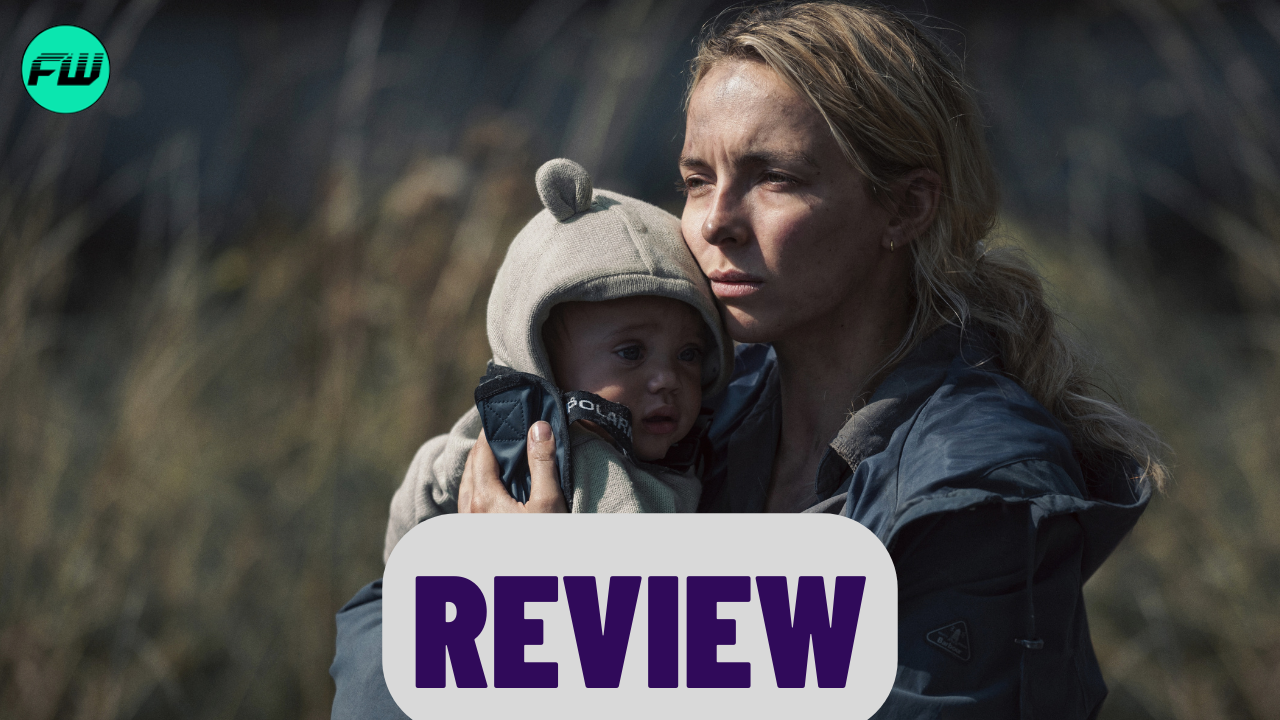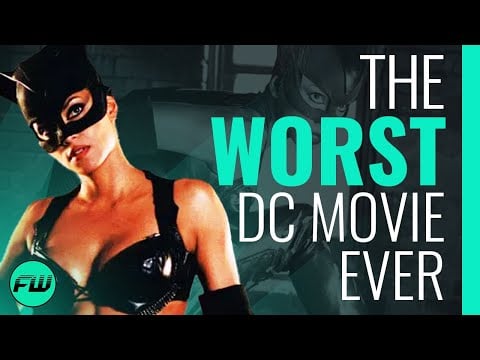The BFI London Film Festival is in its last days. Now, it’s common for the lineup to shrink in terms of the number of screenings while still remaining interesting. Whether it’s highly anticipated movies or opportunities given to British filmmakers, there’s always something that continues to attract viewers heading into the final weekend. The End We Start From fits into the latter group, being Mahalia Belo’s feature directorial debut, who trusts Alice Birch (The Wonder) to adapt Megan Hunter’s same-title novel, as well as a surprisingly stacked cast led by the rising star, Jodie Comer (The Last Duel).
The premise focuses on a climate crisis that generates massive floods in London and its surroundings, causing a near-apocalyptic environment in which a mother and her newborn try to survive. Based on this short introduction, it’s relatively easy to predict the path that The End We Start From will follow, with more or fewer similarities to other films and TV shows of the same genre, including themes about nature, the “human footprint” and motherhood. The cast is undoubtedly the most attention-grabbing element that will convince the majority of the audience to eventually show up in theaters.
The End We Start From Critique

Also Read: Chicken Run: Dawn of the Nugget BFI London Film Festival Review
Concerning Belo’s debut, The End We Start From fulfills its mission of convincing viewers of the filmmaker’s talent. It’s difficult to point out anything extremely original – just like with the vast majority of movies released today – but the meditative visuals filled with maternal symbolism clearly stand out. I don’t believe it calls for a strictly female target audience, but women – especially mothers – will feel a much stronger emotional, personal connection with the film’s supposedly most powerful scenes.
Belo constructs several sequences with high levels of anxiety and tension, never leaving aside the thematic focus, even when The End We Start From navigates through more violent, traumatic stages. Suzie Lavelle’s (Normal People) cinematography stands out from the other technical aspects, enclosing the narrative in a desolate, colorless atmosphere linked with the primary subject matter carefully covered by Birch’s text. Anna Meredith’s (Eighth Grade) score meets the visuals of the film, but I believe it should have had a greater presence in the more stirring moments.
The End We Start From further explores the spiritual component linked to motherhood but remains disappointingly surface-level when it comes to environmentalist messages. The climate crisis serves more as a background plot device than an equally important issue to be studied and taken seriously. There’s no dialogue between the main characters about what put them in their situation, and, apart from the significant presence of pollution in the decoration of each scene, it’s only through news on radio or television that meaningless information about the current state of the country arrives.
The feeling of watching something seen in so many other flicks makes the slow pace even weightier, and the third act lacks a “gut punch” or a truly unique moment. The End We Start From heavily relies on its cast to keep viewers’ engaged… in this area, I have no notes. Comer continues her streak of extraordinarily captivating performances, handling the most tense sequences effortlessly. The actress has the fantastic company of Katherine Waterston (Babylon), who appears at the right time, bringing a layer of surprising yet effective humor to such a dark, depressing world. Benedict Cumberbatch (The Power of the Dog) and Mark Strong (Tár) don’t have much screen time, but as always, the actors make the most of every second to demonstrate why they’re so damn good.
Final Thoughts
The End We Start From marks debutant Mahalia Belo as a filmmaker to follow closely in the coming years, despite the story not being imaginative or impactful enough to reach a higher level of satisfaction. With a substantial thematic sense, maternal symbolism is portrayed through Belo’s contemplative vision, as well as Susie Lavelle’s atmospheric cinematography. However, it’s up to Jodie Comer and Katherine Waterston to carry the movie on their shoulders, which, unfortunately, lacks a better exploration of the climate crisis that it uses more as a narrative background trigger. A more memorable conclusion could have made the difference…
5/10

Follow us for more entertainment coverage on Facebook, Twitter, Instagram, and YouTube.



